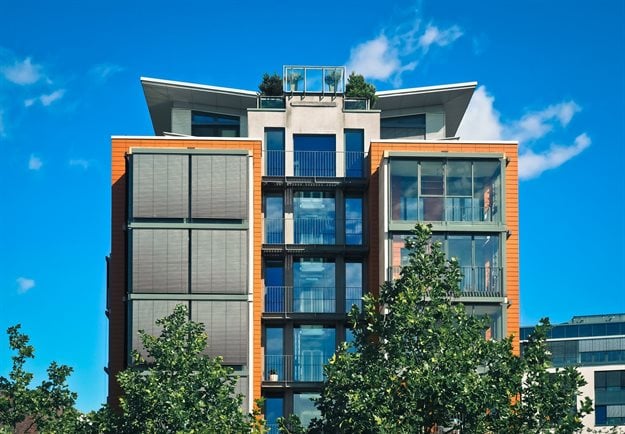
Top stories


ESG & Sustainability#BudgetSpeech2026: SRD grant unchanged, other Sassa social grants see hike
13 hours



More news












ESG & Sustainability
South Africa’s carbon tax should stay: climate scientists explain why










“The pandemic has been a big wake-up call to the commercial property sector,” says Mott. “It’s really driven home the need for agility, adaptability and empathy and the most successful landlords and investors are the ones embracing creative solutions to support their tenants and, as a result, preserve their properties’ income.”
With 2021 pegged to be another tough economic climate for South African businesses, these are the areas Mott says that commercial property landlords will be focusing on in order to thrive in such conditions.
Flexible footprints and lease contracts have all become increasingly desirable for commercial tenants. Handled strategically, Mott says this kind of adaptability can also be a powerful tool for landlords.
“Landlords who are able to accommodate some level of adaptability are going to find it easier to retain tenants and to attract new ones. The more in-touch landlords are with tenant trends and preferences, the more desirable their properties will be,” says Mott.
“Tenants may even be willing to pay a little bit more for the peace of mind of knowing they have options if their situation changes,” Mott adds. “This can be a useful way to balance the more hands-on management required.”
When budgets are stretched, delaying property maintenance can seem like an easy solution. However, Mott says failing to keep commercial properties in good shape is never a smart choice.
“Poorly-maintained properties don’t just struggle to attract tenants, they also lose out on capital growth and achieve poor rental escalation,” he says. “Now is not the time to put that kind of pressure on a commercial property investment. Rather, set aside a budget for property maintenance and ensure this is carried out timeously by good quality contractors. Your profits will reflect these efforts in the long term.”
Securing good commercial tenants takes time under the best of circumstances. Things can move even more slowly mid-pandemic. As such, Mott says it’s essential for landlords to act quickly in the event of a lease cancellation.
“It’s never been more important to advertise a property the moment you receive notice of a lease cancellation,” says Mott. “Finding good tenants is difficult at present, and you definitely don’t want to compromise on tenant quality or vetting just to fill a vacancy sooner.”
Mott also stresses the importance of quality marketing on the right platforms and partnering with an experienced commercial real estate broker.
“Speed is useless if your property isn’t showcased to its full potential, or your marketing never reaches the right eyes,” he says.
When good tenants are few and far between, retaining the ones you already have should be a priority. This, Mott says, requires much more proactive engagement from landlords and/or property managers, as well as empathy and open-mindedness during negotiations.
“Tenants who feel like their landlord has their back are a thousand times more likely to extend their lease than those who feel like just another number in a ledger,” says Mott. “Have a conversation, reach out, human-to-human. A little bit of kindness doesn’t have to affect your bottom line.”
“Commercial property has always been a high-risk, high-reward investment,” says Mott. “That’s as true today as it’s ever been. Investors who can avoid the most common pitfalls and adapt to the shifting landscape have every reason to be optimistic for a profitable year.”